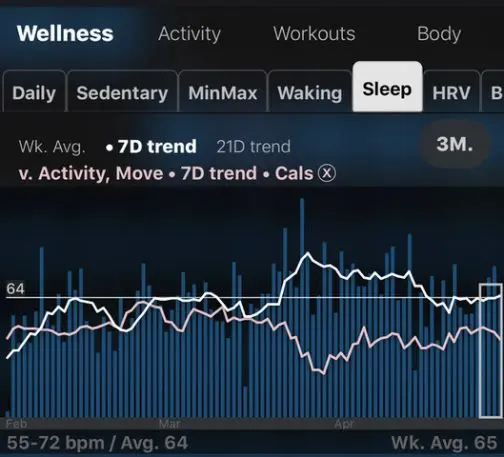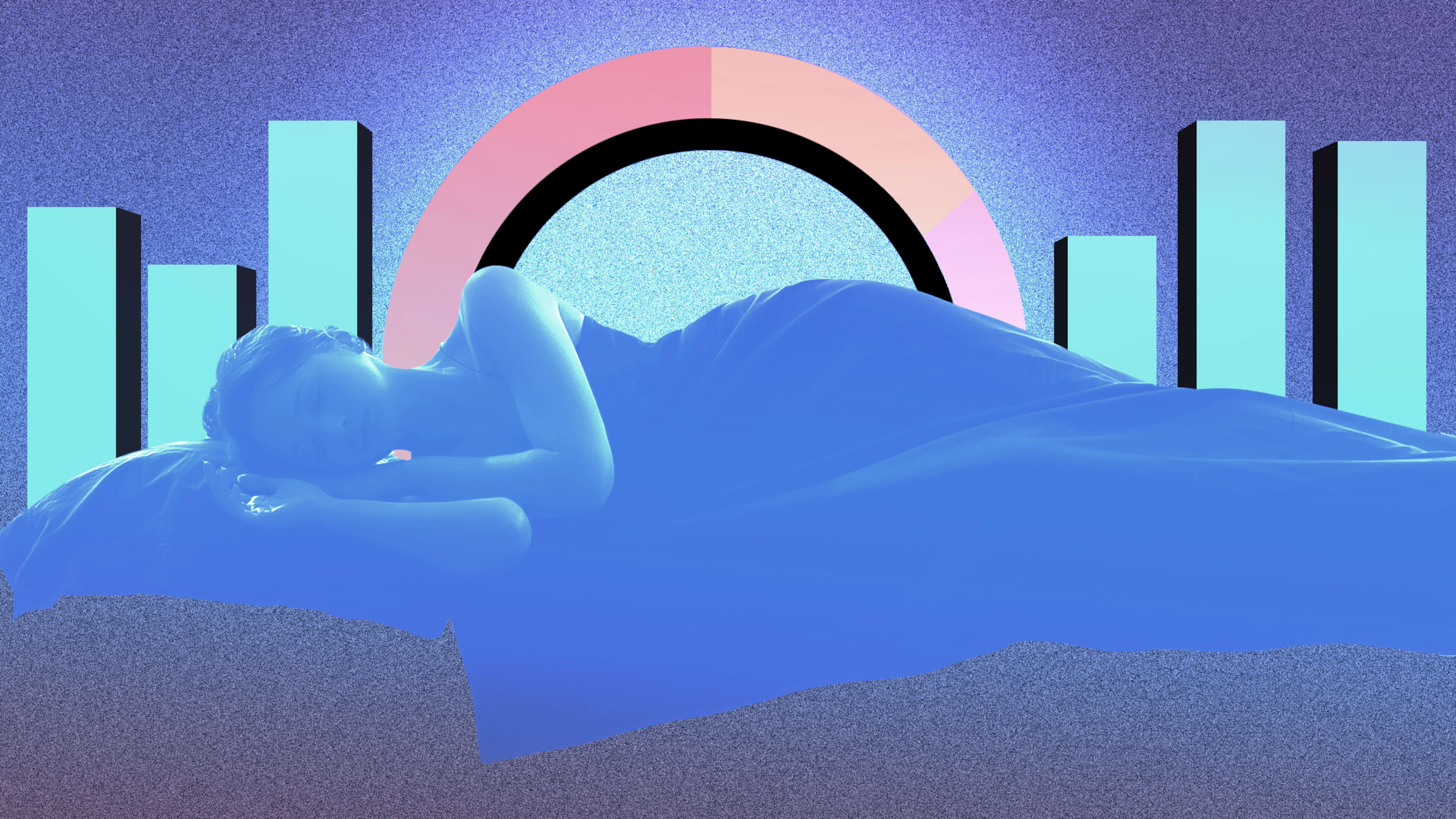Americans don’t typically sleep well. One large survey showed that people get a full, uninterrupted night of sleep on only about one out of four nights. During this anxious time, you might think the problem would get worse. But data from sleep-tracking apps and wearables suggests something different. Many people are actually getting more, better-quality sleep during our new stay-at-home lives.
At Fast Company‘s request, Fitbit pulled data from its wearable devices in use in six U.S. cities—San Francisco, Los Angeles, Houston, Chicago, New York, and Phoenix—and compared how people have slept before and after we began sheltering in place. While Fitbit wearers don’t represent the full U.S. population, the company did find a surprising trend among users: they’re getting 17 minutes more sleep per night in April than they were in January. Thirty-six percent of those people are getting an additional 30 minutes of sleep or more now, as compared to life before lockdown.
Fitbit says the quality of the sleep has improved too. Using the company’s scale from one to 100 that’s based on sleep duration and restorative value, people’s scores have improved by 1.8 points during the crisis. Fitbit users typically score between 72 and 83. Fitbit says the score increases are mainly due to the increased duration of sleep, but increases in REM sleep and Deep Sleep have also helped. The company’s researchers add that people are going to bed an average of 16 minutes later than they did pre-coronavirus.
Eight Sleep, which sells a mattress with various sensors, provided some data that seems complimentary to Fitbit’s findings. It says its customers are going to bed at about the same time as before the lockdown, but are waking up an average of 26 minutes later on weekdays. Before the lockdown, the median wake-up time on weekdays was 6:46 a.m. Now, it’s 7:12 a.m. Eight Sleep believes people are sleeping later because they know they don’t have to commute.
Consistency matters
During shelter-in-place, the days can start to run together. In terms of sleep, Sleep Eight’s data shows that weekdays and weekends have indeed grown much more alike. The company says that before the crisis, its customers slept an average of 90 minutes more on weekends. But now the average difference between weekend days and weekdays is only 12 minutes.
Withings, which makes smart scales and wearables, also reports that its U.S. customers are going to bed and rising at roughly the same times on weekend days as they are on weekdays. Their data also shows that Americans are sleeping on average 12 minutes longer a night than they were before self-isolation and waking up almost 26 minutes later. Like Eight Sleep, Withings’s researchers attribute this to people no longer having to commute. Withings’s findings are based on a comparison of 2020 aggregate U.S. user data collected before self-isolation with user data collected between the start of self-isolation in mid-March and April 18.
The company adds that its scales are reporting only a modest weight gain—roughly a fifth of a pound—among its users during the lockdown.
This is all somewhat surprising and counterintuitive. It may be that people who wear fitness devices and measure their sleep are a well-adjusted bunch who deal with stressful times well. While their stats may not extrapolate well to the wider population, they are a pretty big group: A 2020 Pew Research study found that a fifth of Americans now wear some kind of fitness tracker or smartwatch.
Still, for some of us, coronavirus has indeed bumped up the anxiety level and caused some sleep problems.
“Unlike the exam or interview, which may affect one or two nights, COVID-19 has created ongoing anxiety for many people and has impacted their sleep for days and weeks on end,” says Neil Leibowitz, a doctor and chief medical officer at the virtual behavioral health provider Talkspace. “Stress affects neurotransmitters in our brains that can interfere with sleeping patterns.”
Other factors impact our sleep as well
The market research firm Nielsen provided data suggesting some of us are dealing with the strain by drinking a bit more. Alcohol sales increased almost 16% in the week ending April 18 versus the same week a year ago, Nielsen says. People are buying a lot more booze online, too. For the period from the start of March through April 18, Nielsen says that e-commerce alcohol sales increased 234% over the same period a year ago. A recent survey by Alcohol.org of 3,000 work-from-home employees found that a third of them believed they’re more likely to drink at home during work hours than before the lockdown began. Alcohol can contribute to sleep disruption.
So can screen time. “Screen time is at an all-time high,” Leibowitz says. “The light emitted from screens can affect production of melatonin, which can negatively impact sleep.” The network infrastructure company Cloudflare says home broadband usage has increased by around a quarter in many U.S. cities, driven by increased videoconferencing, online gaming, and video streaming. Some of the growth is caused by kids doing their schooling from home.
Exercise impacts sleep quantity and quality too. Fitbit data say activity levels dropped between 15% and 20% in major metropolitan areas such as Los Angeles, Boston, New York, San Francisco, and Chicago by March 22. An Evidation Health study of data from almost 70,000 fitness trackers across the U.S. shows that physical activity dropped 48% from March 1 to April 6. David Walsh, developer of the iOS sleep tracker AutoSleep, says the data show that reductions in exercise track closely with increases in sleeping heart rate, which indicates less restful sleep. This screen grab of the HeartWatch app shows the seven-day rolling average sleeping heart rate, as compared to the seven-day rolling average for movement.

Even with the drinking, screen time, and exercise factors seemingly working against us, the numbers show that we’re still sleeping okay. It may be that sleep is something more than a way to physically recharge. Sleeping, and dreaming vividly, may be part of our natural way of making it through hard times.
Recognize your brand’s excellence by applying to this year’s Brands That Matter Awards before the early-rate deadline, May 3.
